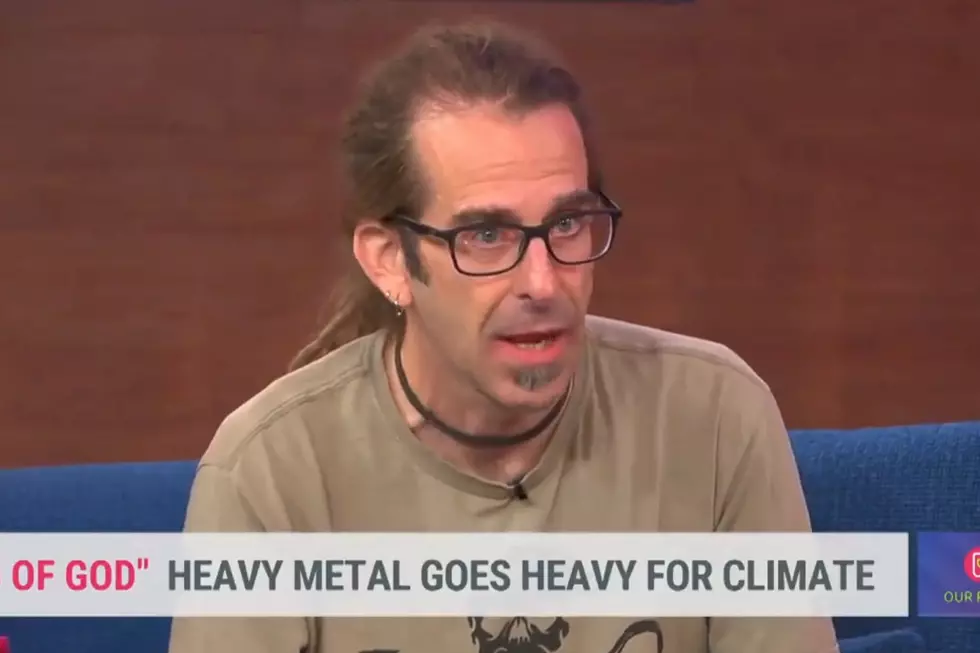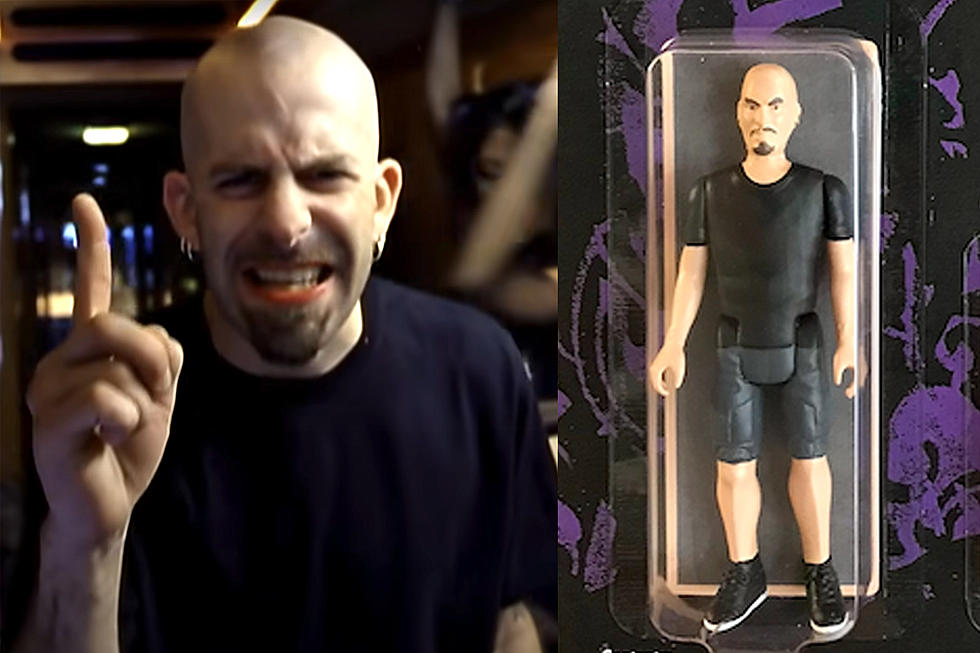
Lamb of God’s Randy Blythe: Graffitied Confederate Statues Belong in Museums
Lamb of God's Randy Blythe is a native of Richmond, Va., where nearly a dozen Confederate statues stand on city property. In recent weeks, protestors have vandalized statues representing figures of the losing side of the Civil War and even toppled some and the singer has weighed in with his own thoughts, feeling these graffitied memorials should be preserved in a museum to remember this exact point in America's history.
Blythe, who was interviewed by The Hundreds TV, spoke freely about the Confederate statues, where they came from and where they should be in the future.
"I think it's important to recognize when and why these monuments were put up, because there's this false narrative that at the end of the Civil War, the Confederacy put up all these monuments," said Blythe, who elaborated, "Most of these monuments, they were erected during the Jim Crow era, when the segregationist laws were put into effect. And they were put there to cement the position of white people in our society, particularly in the South."
Speaking more directly about the divisive statue of Confederate General Robert E. Lee, the commander of the Confederate army whose 1865 surrender essentially ended the Civil War, Blythe relayed, "I find it very interesting, for me, the biggest monument is Robert E. Lee on Monument Avenue, that Robert E. Lee himself was very against erecting such monuments; on several different occasions, he spoke against it."
Blythe contends that Lee felt reminders of the Civil War should be removed to afford the opportunity for healing. "But with Jim Crow and the need to — now that slaves are illegal — the need to keep black people in a subservient position, both physically and economically, they erect these big monuments," the singer went on, noting that tax dollars are behind the maintenance, lighting and current police protection of Confederate statues.
"It's just a reminder of going back all the way to why the African-American community is here in the first place, which is slavery," asserted the singer, who noted Richmond's community is predominantly Black. "Richmond had the second-largest slave market in the United States; the first was in New Orleans."
Blythe also spoke about the death of Minneapolis man George Floyd, who died in police custody on video, spurring worldwide protests against police brutality and for racial equality. He said these tensions have been building up and "in Richmond, particularly the younger population, they've had enough of this. We've talked about putting the statues in context or maybe adding signs or all this other stuff. I think particularly the youth today are just, like, 'No. This is a slap in the face.'"
Local officials around the country have used executive authority to order the removal of Confederate statues and the national debate on how to properly handle this issue often results in heated debates.
Blythe, however, has unique idea.
"I believe — it's my personal belief — that the statues should be preserved," he urged, cautioning, "Not where they are, in this glorified position on Monument [Avenue], and everybody's tax dollars are paying to take care of them."
As for what to do with them, the Lamb of God singer suggested, "But I think they should be taken — they are supposed to be put in storage. And maybe they can be in a museum exhibit or something, so people can understand this time. And when I say this time, I'm talking about right now; there's graffiti all over these things."
Blythe also took aim at the current state of the world on Lamb of God's self-titled new album, which was released in June. The group was supposed to be on a co-headlining summer tour with Megadeth alongside Trivium and In Flames, but that trek has now been pushed to 2021 because of the effects of the coronavirus pandemic.
Randy Blythe Interviewed on The Hundreds TV
See Lamb of God in 2020's Best Metal Albums (So Far)





